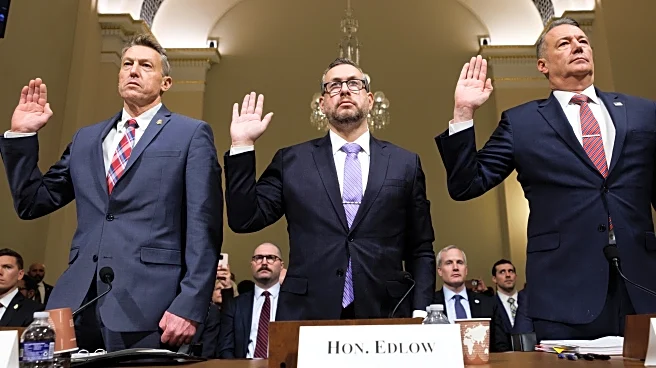In a significant diplomatic move, U.S. Ambassador to Israel Mike Huckabee has publicly condemned an attack on a Palestinian church in the West Bank, labeling it an "act of terror." This intervention from
Did You Know
The world's oldest person on record lived to be 122 years old.
?
AD
Washington comes at a time of increased violence in the region, as frustrations simmer between Israeli settlers and Palestinian communities. The church, a symbol of heritage and faith, was reportedly targeted by Israeli settlers, amplifying concerns over the treatment of religious sites and the growing challenges faced by Christian organizations in the area.
Huckabee's response not only sheds light on this specific incident but also highlights a broader narrative within the Israeli-Palestinian conflict. He called for the prosecution of those responsible for the attack, emphasizing the importance of accountability and the protection of places of worship. Such a stance underscores a shift in U.S. diplomatic engagement, which has historically been cautious on issues related to settlers and their actions in the occupied territories. His advocacy reflects a growing recognition of the complexities involved, especially following a recent killing of a Palestinian-American youth that he condemned.
The ambassador's visit to the affected village came amid rising tensions and serves as a gesture of solidarity with the local community. As Huckabee navigates this intricate landscape, his actions reveal the ongoing challenges in U.S.-Israeli relations and the critical need for dialogue. This episode may not only reshape perceptions of American involvement in the region but could also influence the dynamics on the ground as communities seek peace in a tumultuous environment.
Q&A (Auto-generated by AI)
What sparked the church arson in Taybeh?
The church arson in Taybeh was reportedly part of a broader pattern of violence involving Israeli settlers in the West Bank. Such incidents often arise from tensions between settlers and Palestinian communities, exacerbated by political and social disputes in the region. The attack on the church specifically targeted a historic site, raising concerns about the safety of Christian communities in an area predominantly inhabited by Muslims.
How does this incident reflect settler violence?
The arson attack in Taybeh exemplifies the ongoing issue of settler violence in the West Bank, where clashes between Israeli settlers and Palestinians frequently occur. This violence is often fueled by political tensions, land disputes, and a lack of accountability for perpetrators. The U.S. Ambassador's condemnation highlights the international scrutiny of these actions and the call for justice, reflecting a rare acknowledgment of the complexities of Israeli-Palestinian relations.
What is the history of Christian communities in the West Bank?
Christian communities in the West Bank have a long and rich history, dating back to the early days of Christianity. Historically, these communities coexisted with Muslim populations, contributing to the cultural and social fabric of the region. However, recent decades have seen a decline in Christian populations due to emigration driven by political instability, economic challenges, and rising tensions, particularly in areas like Bethlehem and Taybeh.
What role do U.S. ambassadors play in conflict zones?
U.S. ambassadors in conflict zones serve as key diplomatic representatives, tasked with promoting U.S. interests, facilitating dialogue, and addressing humanitarian issues. They engage with local governments, NGOs, and communities to foster stability and peace. In cases like the West Bank, ambassadors often address human rights concerns and advocate for the protection of minority groups, as evidenced by Ambassador Huckabee's condemnation of the church arson.
How has the U.S. responded to similar incidents before?
Historically, the U.S. has responded to incidents of violence in the West Bank with varying degrees of condemnation and diplomatic pressure. Responses often include calls for investigations, support for peace negotiations, and statements emphasizing the need for accountability. The U.S. has also provided aid to both Palestinian and Israeli communities, aiming to stabilize the region and promote coexistence despite ongoing tensions.














